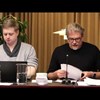mutually
Four decisions that actually matter for climate change
Did you take part in Earth Hour last month? On the 24th of March each year a big part of the earth’s population in the most energy consuming countries turn the lights off for one hour to stress the en
Triples of Orthogonal Latin and Youden Rectangles For Small Orders
Journal of Combinatorial Designs, Volume 27, Issue 4, p. 229-250, doi.org/10.1002/jcd.21642 Abstract We have performed a complete enumeration of nonisotopic triples of mutually orthogonal Latin rectangle. Here we will present a census of such triples, classified by various properties, including the order of the autotopism group of the triple. As part of this, we have also achieved the first enumeration of pairwise orthogonal triples of Youden rectangles. We have also studied orthogonal triples of rectangles which are formed by extending mutually orthogonal triples with nontrivial autotopisms one row at a time, and requiring that the autotopism group is nontrivial in each step. This class includes a triple coming from the projective plane of order 8. Here we find a remarkably symmetrical pair of triples of rectangles, formed by juxtaposing two selected copies of complete sets of mutually orthogonal Latin squares of order 4.
Moral Disagreement and the Question Under Discussion
Journal of Ethics & Social Philosophy Abstract If the extension of a moral expression varies depending on the context of utterance, as contextualism maintains, then two speakers who embrace differen
The popular sovereignty of Indigenous peoples: a challenge in multi-people states
Citizenship Studies ABSTRACT The doctrine of popular sovereignty holds that the ‘supreme authority of the state’ belongs to the people, not to the political institutions exercising public power. What ar

Stina Björkholm
My research interests broadly concern evaluative and normative aspects of linguistic communication. I defended my PhD thesis The Duality of Moral Language: On Hybrid Theories in Metaethicsat Stockholm U

Mike Otsuka: How to pool risks across generations
Research seminar with Michael Otsuka, Professor of Philosophy, London School of Economics. Full title: How to pool risks across generations: A reciprocity-based case for an unfunded pay as you go (PAY

The conversational context and conceptual engineering
Conceptual engineering concerns what it is for a concept to be defective and therefor ameliorated or abolished. The goal of this project, however, is to shift the focus to the role of the context, which might help us understand conflicts about the meaning of our words.
Peter Edlund: Constructing an Arbiter of Status: A Study of the European Research Council's Emergence in the Field of Science
Peter Edlund, Researcher at the Department of Business Studies, Uppsala University. Abstract In my presentation, I will develop a theoretical account that centers on how certain actors are constructed i
Michael Otsuka: How to pool risks across generations
Full title: How to pool risks across generations: A reciprocity-based case for an unfunded pay as you go (PAYG) pension Research seminar with Michael Otsuka, Professor of Philosophy, London School of E
Rainer Bauböck: Globalization, new technologies and the future of democratic citizenship
Professor of Social and Political Theory, European University Institute. ABSTRACT Liberal democratic citizenship has been shaped by the legacies of Athens (democracy) and Rome (legal rights) but operate between individuals and states. In a Westphalian world, citizenship has both instrumental and identity value. Enhanced opportunities and interests in mobility rights strengthen instrumental interests in multiple citizenship among immigrants, among populations in less developed countries, and among wealthy elites. The latter two trends potentially undermine a genuine link norm and, if they prevail, might replace the Westphalian allocation of citizenship with a global market. New digital technologies create a second challenge to Westphalian citizenship. As has argued, digital identities could provide a global legal persona for all human beings independently of their nationality, and blockchain technologies could enable the formation of non-territorial political communities providing governance services to their members independently of states. Both the instrumental uses of citizenship for geographic mobility and technologies that create substitutes for territorial citizenship are not merely relevant as current trends. They are also advocated and defended normatively as responses to the global injustice of the birthright lottery. I will challenge this idea and argue that liberal democracies should not be conceived as voluntary associations whose membership is freely chosen, but as communities of destiny among people who have been thrown together by history and their circumstances of life. How these foundations of democratic community can be maintained in the context of rising mobility and the digital revolution remains an open question.








